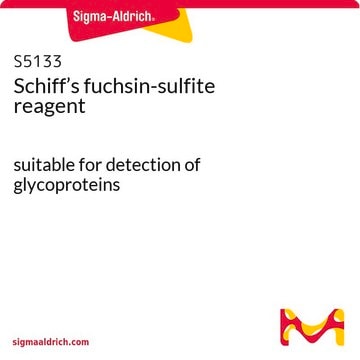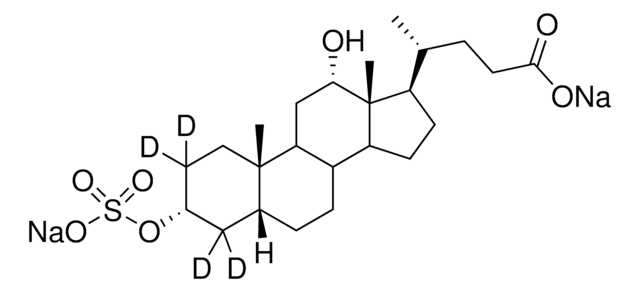1.01646
PAS staining kit
for detection of aldehyde and mucosubstances
About This Item
Produits recommandés
Niveau de qualité
IVD
for in vitro diagnostic use
Application(s)
clinical testing
diagnostic assay manufacturing
hematology
histology
Température de stockage
15-25°C
Description générale
The kit can be used for clinical diagnostic purposes and in laboratory accreditation processes as it is certified and registered as IVD and CE product. For more details, please see instructions for use (IFU). The IFU can be downloaded from this webpage.
Remarque sur l'analyse
nuclei: blue
acid mucosubstances: light blue
polysaccharides: purple
neutral mucopolysaccharides: purple
Mentions de danger
Conseils de prudence
Classification des risques
Aquatic Chronic 3
Code de la classe de stockage
12 - Non Combustible Liquids
Classe de danger pour l'eau (WGK)
WGK 2
Point d'éclair (°F)
Not applicable
Point d'éclair (°C)
Not applicable
Certificats d'analyse (COA)
Recherchez un Certificats d'analyse (COA) en saisissant le numéro de lot du produit. Les numéros de lot figurent sur l'étiquette du produit après les mots "Lot" ou "Batch".
Déjà en possession de ce produit ?
Retrouvez la documentation relative aux produits que vous avez récemment achetés dans la Bibliothèque de documents.
Les clients ont également consulté
Contenu apparenté
Apprenez-en davantage sur le caractère critique de la coloration de tissus biologiques pour la recherche et la biologie médicale en utilisant des colorants standards et spéciaux.
Learn about the criticality of biological tissue staining for research and clinical pathology using standard and special stains and dyes.
Notre équipe de scientifiques dispose d'une expérience dans tous les secteurs de la recherche, notamment en sciences de la vie, science des matériaux, synthèse chimique, chromatographie, analyse et dans de nombreux autres domaines..
Contacter notre Service technique












